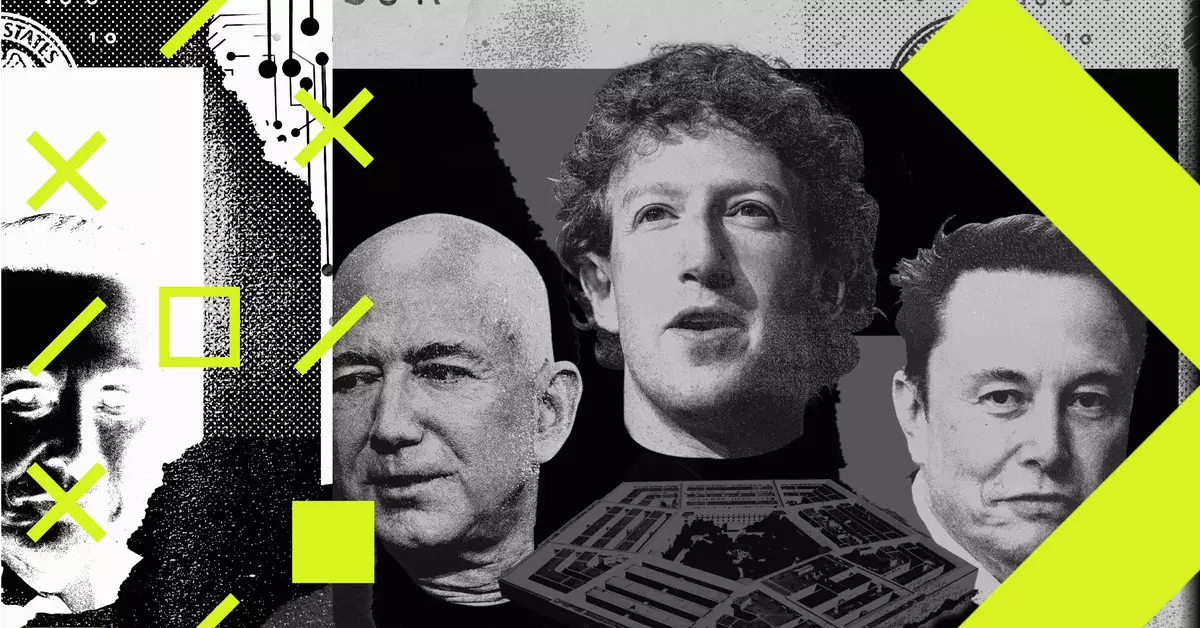In the aftermath of the second Trump administration’s inauguration, a seismic shift is rippling through the landscape of big tech, reshaping the narrative surrounding internet governance and free speech. This chaotic period has been characterized by questionable decision-making from major platforms like Meta and TikTok, revealing the fraught relationship between corporate stewardship and governmental influence. The disarray reflects a larger issue of who ultimately controls the narratives we engage with online—a question increasingly urgent for a society dependent on digital communication.
As platforms grapple with their influence, they are also facing pressure to navigate the tumultuous waters of public opinion and regulations, often formulated by politicians with their agendas. Kate Klonick, a legal scholar and digital rights expert, illuminated this landscape in her recent conversation about the complex role these tech giants play amidst changing political tides. With her insight, we delve into how the policies promoted by the Trump administration are not only ambiguous but indicative of a growing trend towards the intertwining of billionaire interests with state power.
Meta’s Shift: A New Era of Content Moderation
Recently, Mark Zuckerberg’s announcement concerning Meta’s content moderation policies heralded a significant departure from previous guidelines. By introducing crowdsourced community notes and abandoning traditional fact-checking, the company has opened its doors to a wider array of content, including hate speech and discriminatory remarks that had once been rigorously filtered out.
Critics see this evolution as a capitulation to right-wing sentiments, marking what some deem a “MAGA heel turn” for Zuckerberg. Intriguingly, the changes are not merely national but international, signaling how intertwined the tech landscape is with a myriad of geopolitical concerns. Under the weight of new regulations from the European Union’s Digital Services Act, significant challenges loom ahead for social media platforms striving to comply while maintaining profitability and user safety.
The question arises: Is Zuckerberg repositioning Meta to ingratiate himself with political leaders, particularly Trump? The implications of such a strategy may serve to further dilute standards for acceptable content on digital platforms, sacrificing user safety for political favor. This trade-off could pave the way for unprecedented levels of hate and division that permeate our online spaces.
One of the most glaring instances of tech companies embroiled in political maneuverings is the controversy surrounding TikTok. With reports of legislative actions aiming to divest TikTok from its Chinese ownership, the potential for a government-controlled competitor looms large. The implications are manifold, especially when proposals such as having the U.S. government own a significant stake in TikTok come to light. This concept raises myriad First Amendment concerns, positioning the government as a gatekeeper of online discourse.
This episode is a testament to the broader implications of tech regulation in an era defined by partisanship. The cavalier attitude displayed by Trump over congressional mandates showcases how power could be exploited to serve individual or partisan agendas. Such political gamesmanship underscores the precarious balance of maintaining democratic principles while navigating the whims of those in power.
In light of recent events, there is a clarion call for greater transparency and accountability within tech companies. With an overwhelming influence on public discourse, major platforms can no longer operate in isolation, free from scrutiny. Users deserve a clear understanding of how their digital interactions are governed and how policies are designed and implemented.
The conversations surrounding these issues are no longer academic; they have become urgent matters in our digital lives. The challenges faced by society are reflective of deeper global tensions over expression, governance, and power—an interconnected web that cannot be ignored. As we navigate this shifting digital landscape, it is imperative to advocate for meaningful reforms that prioritize democratic ideals and safeguard individual rights.
The Future of Digital Speech: Hope or Handcuffs?
As we venture deeper into this uncertain terrain, the trajectory of digital speech holds both promise and peril. While technological advances present new avenues for expression and connection, the specter of unchecked power looms over the digital realm, threatening to constrict the freedoms we have come to rely upon.
In this rapidly evolving environment, the stakes have never been higher. The interplay between governance and big tech will inevitably determine the future of communication as we know it. As users, activists, and advocates, we must challenge the narratives shaping our online spaces, ensuring that the principles of free speech and accountability are not merely lofty ideals but lived realities for all. Only then can we hope to reclaim the internet as a space of inclusivity and genuine dialogue, free from the specters of censorship and coercion.


Leave a Reply